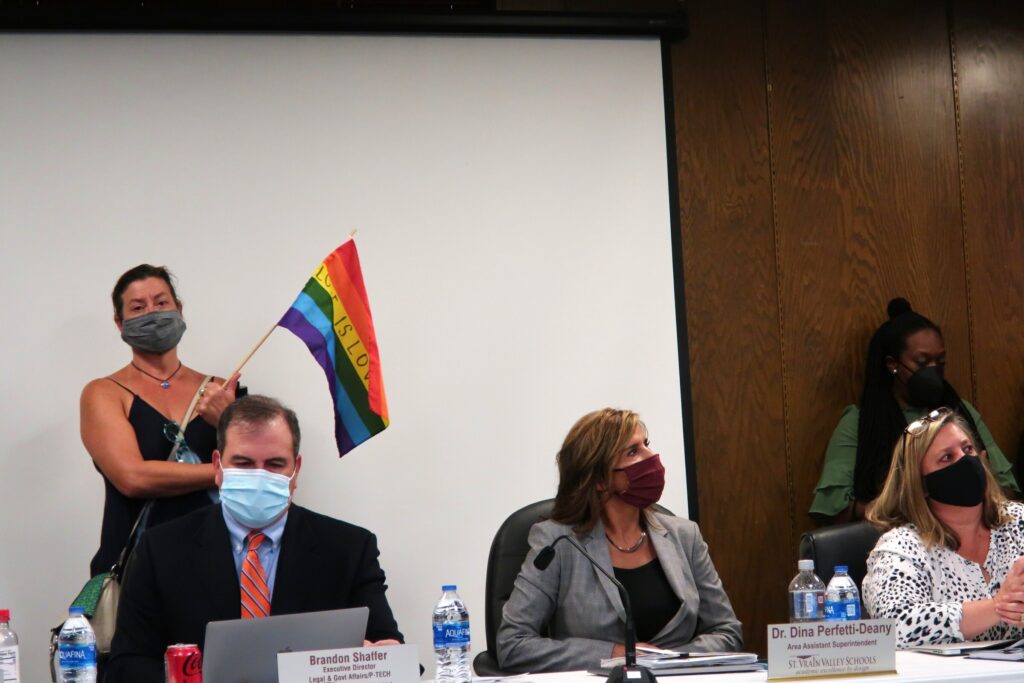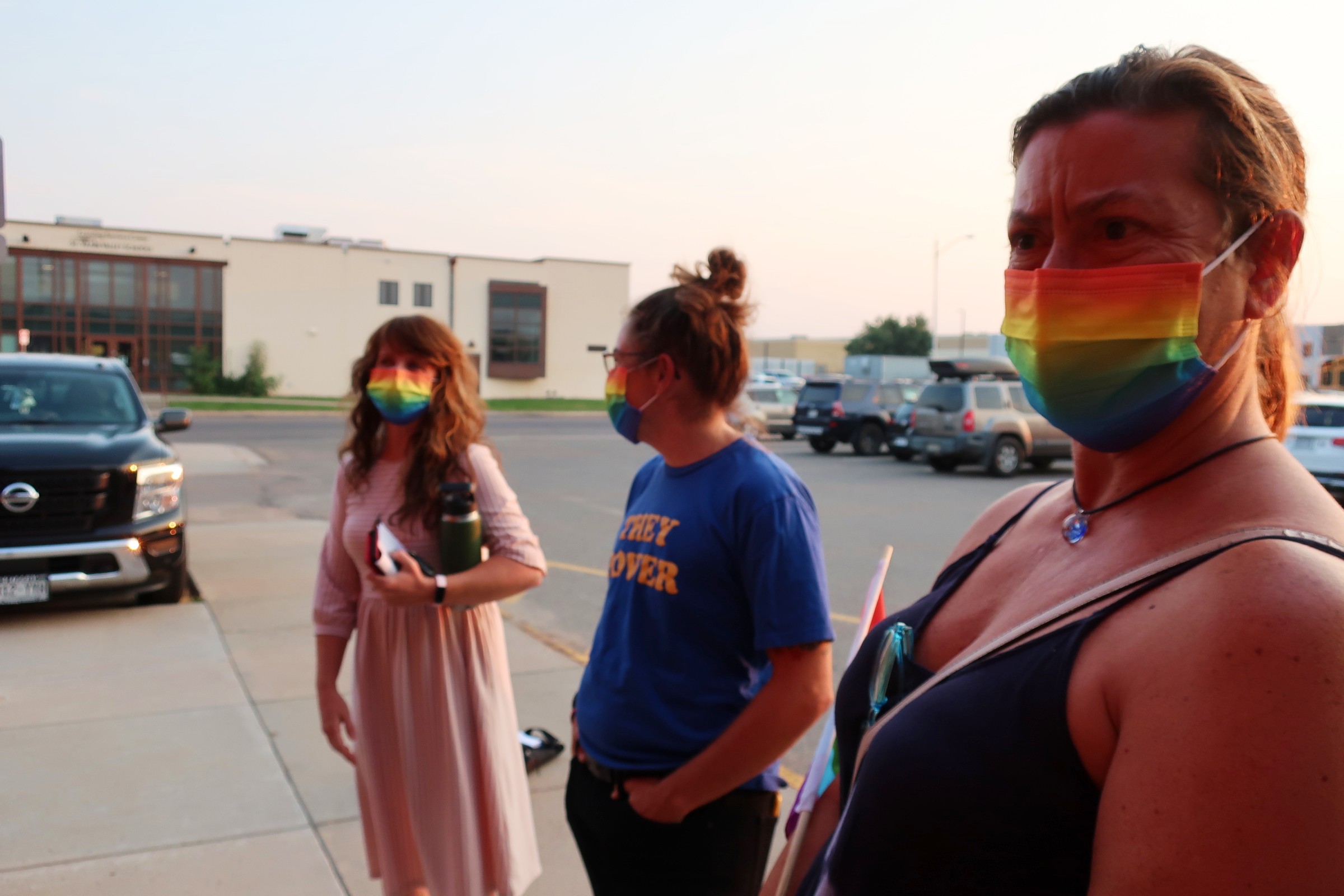
The St. Vrain Valley school district was where she wanted to teach.
She picked it specifically.
She knew of the district’s longtime partnership with a CU Boulder-based teacher training center, so expected it to be an open and embracing place where conversations about race and gender identity were happening in classrooms.
“My experience is that there's an undertone that these conversations aren't welcome,” said the elementary school teacher, who did not want to be identified in order to protect her school and principal from negative repercussions.
She said there were parent complaints at her school and others about having those conversations. It wasn’t always this way. Something was changing.
This summer, the district released a statement that it did not teach critical race theory, a decades-old graduate-level legal theory that holds that racism is embedded in the country’s legal system, policies and social institutions. The district scrubbed its website of references to “institutional racism” and “racial and cultural biases,” according to screenshots obtained by CPR News.
And then, without warning, the district withdrew its sponsorship for 150 teachers to attend an equity conference hosted by A Queer Endeavor, which had had a seven-year relationship with the district. Through a newspaper article, the elementary school teacher, like others, learned that all future equity training would take place in-house. The organization covered the teachers’ costs through donations.
The sudden turnaround has left some St. Vrain teachers confused and afraid about what they can and can’t teach or talk about in school, despite a Colorado law mandating that schools include the social contributions of minority groups in civic classes, and a state standard that teachers establish a safe, inclusive and respectful learning environment for a diverse population of students.
They’re not alone, many school districts are facing similar pushback. In Colorado Springs, the district has banned critical race theory. Many parents spoke out against teaching it during a June board meeting for Cherry Creek Schools. An educational equity policy in Douglas County was likened to teaching critical race theory.
“It makes it feel scary as an educator to talk about these things and bring these conversations to the classroom when there's not going to be the district support of like, ‘Nope, this is what we believe, this is why we're having these conversations,’” the teacher said.
The situation is emblematic of how — when some Colorado school districts create equity policies and practices to meet the needs of their increasingly diverse student bodies — they suddenly are facing pushback from a sometimes small but vocal community of residents and parents. School boards and district leaders feel under immense pressure to please them, making others question how committed they are to equity and meeting the needs of every student.
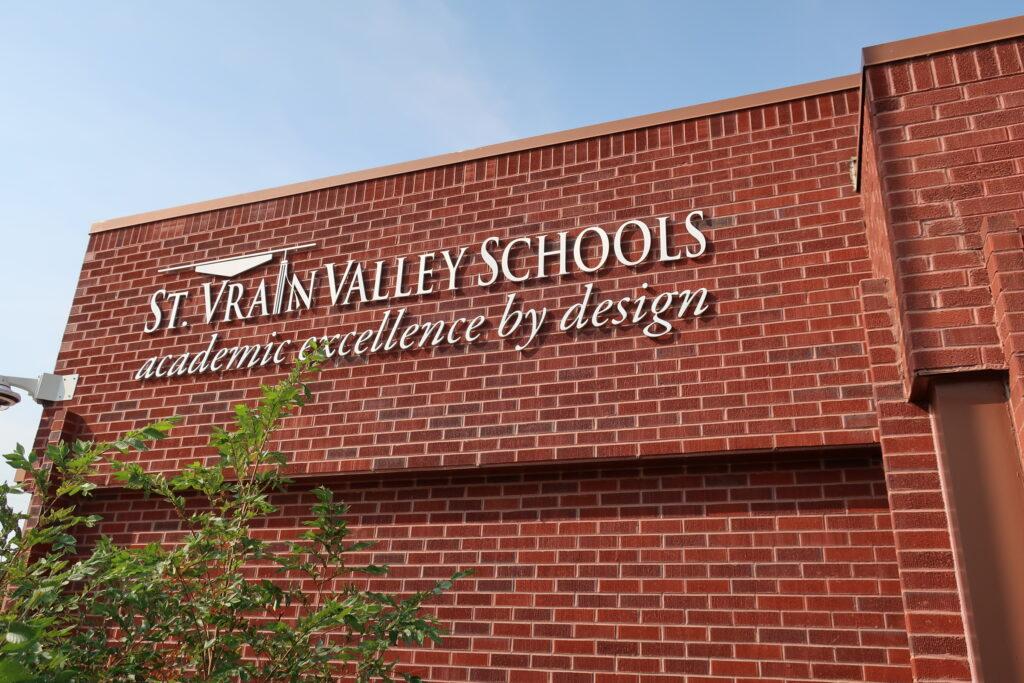
A diverse but also predominantly white district
The St. Vrain Valley School District, Colorado’s seventh-largest school district, has 33,000 students spread over 13 different politically diverse communities, from eastern Boulder to Erie, Frederick to Lyons. Parts of Boulder, Broomfield, Larimer, and Weld counties fall within its boundaries. The district is 38 percent students of color and 62 percent white, and 15 percent of the student body are English language learners.
The district is perhaps best known for innovation, with many career and technical pathways available to students – such as aerospace and engineering, business, medical biosciences, the visual and performing arts, and teaching.
Less well known has been its commitment to equity, diversity and inclusion, from teacher training on helping students explore diverse perspectives from different cultures and communities, to inclusive curriculum. For years, it touted its longtime partnership with groups like A Queer Endeavor, a center at CU’s school of education that has helped hundreds of teachers make their classrooms safer and more affirming of LGBTQ+ students and other marginalized groups, undocumented students and students of color.
In May, the St. Vrain Valley School District was openly touting its work on diversity, equity and inclusion.
On May 12, school board members were briefed on the activities of the Office of Equity and Community Engagement. It has many mandates, but one is training and support for curriculum, equity explorations, and equity collaborations. District leaders spoke proudly of collaborations with outside partners including the St. Vrain Safe Schools Coalition, A Queer Endeavor, SURJ (Showing Up For Racial Justice), and other “cultural brokers.”
The briefing outlined progress on updating curriculum to conform to state law and standards — for example, analyzing historical events from multiple perspectives, and making sure teachers can choose texts with diverse authors and protagonists.
“That includes everything from gender, gender identity, ethnicity, sexual orientation, ability and age, religious representation, to really combat what was a very monolithic experience that we found in our previous curricula,” said Zac Chase, a language arts coordinator with St. Vrain.
The district conducted an internal audit of district resources, using tools to identify bias as well as evaluate diversity, age-appropriateness, and making sure some stories are positive and uplifting alongside highlighting those struggles.
The district also planned to include texts on teacher lists that were recommended by students from the SVVSD chapter of Diversifying Our Narratives, a national group committed to changing curriculums and education systems to promote a diverse and anti-racist culture.
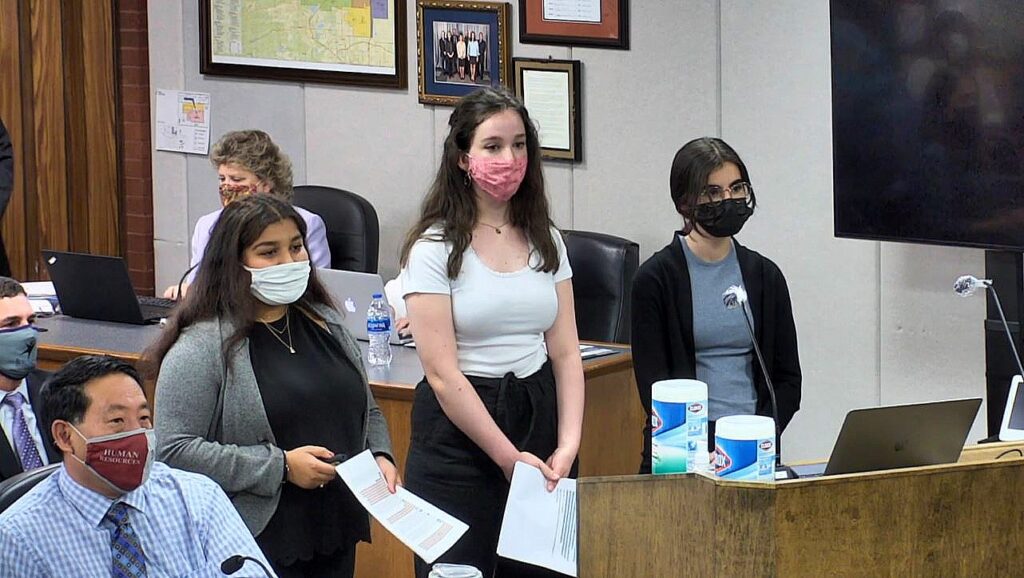
Students at the board meeting told board members they wanted more opportunities in class to talk about pressing issues in the world, such as discrimination against Black Americans and LGBTQ+ people. They said they found many of their peers lacked knowledge of those communities and were sometimes insensitive.
“I know how important it is for people to see themselves represented in the classroom,” said Reese Ransweiler, then a junior at Niwot High School who identifies as LGBTQ+. “Not only on an educational level, but also because it provides a sense of identity and inclusion that is so often difficult to obtain.”
In late May, photos circulated online of three teenagers from Mead High School recreating the murder of George Floyd. One of them was in blackface.
In response, SVVSD Superintendent Don Haddad released a statement condemning the incident. District leaders spoke at a virtual town hall and panel hosted by several Boulder social justice organizations and committed to have discussions focused on “microaggressions, inclusivity, anti-racism and more.” Students in the district discussed other racist incidents at schools.
At a May school board meeting, Haddad read a statement from the Boulder County NAACP that asked the district to do a number of things, including tracking bias-related incidents, placing a definition of such incidents in the code of conduct, and instituting mandatory anti-racism training.
Longmont parent Trista Gage, representing SURJ Boulder, asked the board for bigger institutional change, curriculum changes across all schools, more cultural sensitivity, and a space for advocacy groups for families of color in schools.
“There should be a safe space for reporting bias-related incidents and there should be absolute accountability for principals who fail to live up to these steps,” she said.
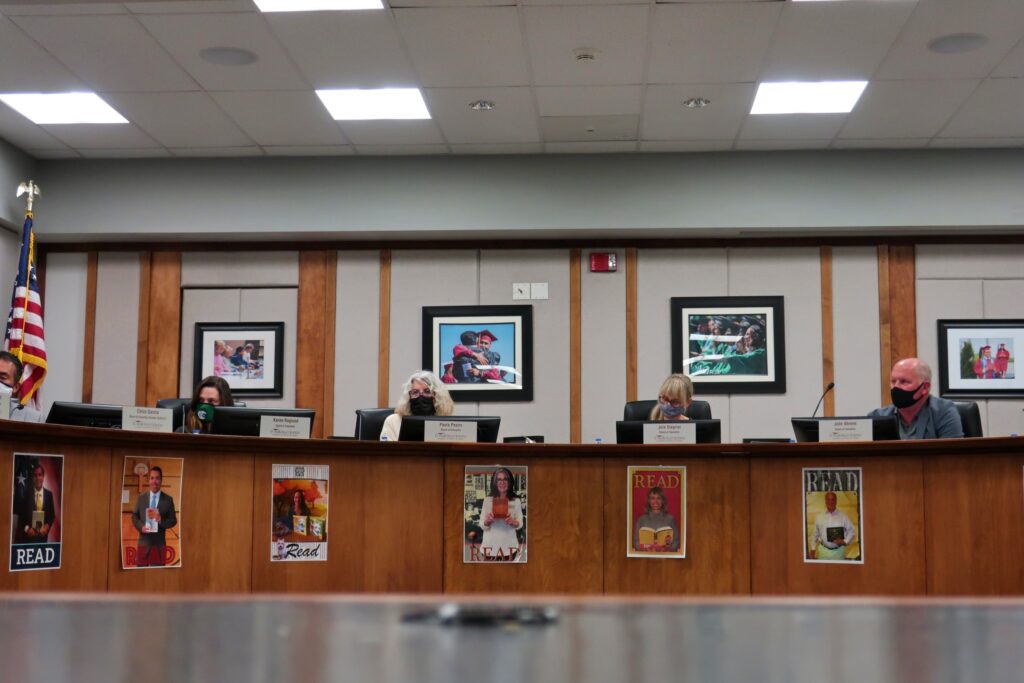
Other parents however, took offense to those requests.
At a June board meeting, Mead resident Natalie Abshier, who is running for school board this November, said the requests just amount to more “critical race theory,” anti-racist curriculum training and diversity training, which she said she opposes.
She said CRT teaches children to view people based on skin color or sexual orientation, and groups are “indoctrinated” as oppressors or victims. Abshier said that causes division and hate among all people. Scholars of critical race theory dispute this interpretation.
Others told Superintendent Haddad he was “forcing” CRT training on teachers, disliked that he was committed to working with the NAACP, and disagreed with many of the books that one group suggested students read to learn more about race in America. Longmont parent Matt Menza told Haddad to end equity training and retreats. Menza said Haddad is “indoctrinating your teachers.”
“The wokeism, the garbage that is crushing America … we don't want it here,” he said. “Put out a public statement saying ‘reject critical race theory’ and give us confidence you're doing the right job or else, like somebody else said, ‘We're all watching. We're going to get rid of you.”
The next day the district did just that, releasing a statement on June 24 that it does not teach critical race theory.
The district has also removed language from its website’s equity page that recognized institutional racism and cultural and racial biases.
District leaders also pulled away from at least one longtime partner that helped it conduct its equity work. In May, district leaders touted the summer Educator Institute for Equity and Justice In Education conference, put on by A Queer Endeavor. By the end of July, the district pulled its $15,000 sponsorship of the conference the day before it started.
The district said it withdrew sponsorship based on legal advice after community member registrants complained that a workshop attacked their religious beliefs. District attorneys said it would “breach our obligation for religious neutrality” so could not pay registration fees for teachers and staff.
The workshop in question was titled, “Turning Swords into Plowshares: Disarming White Christian Supremacy for Queer and Trans Liberation,” and was taught by Rev. Lyndsey Godwin, a Christian minister at Vanderbilt University’s Divinity School.
A Queer Endeavor’s co-founder Bethy Leonardi said the workshop was not anti-religion but sought to help educators and others who may have lost their religion — understanding the harms that some sects of Christianity have caused to many LGBTQ+ people.
“In many ways it was for LGBTQ educators who have felt the pain of losing their faith, losing their families,” she said. “It's important to recognize that we talk about religious persecution in the curriculum of public schools. This was no different than that.”
Leonardi was even more shocked when she learned A Queer Endeavor’s 7-year relationship with the district, one she said was grounded in respect, policy and Colorado law, was over. The organization has trained about 1,000 teachers in the district. She said it tailors the trainings to be sensitive to each community.
“They’re no two sides of equity,” she said. “The work that we do does not harm kids. It helps kids. Our work has been mischaracterized over the last few weeks, that it’s not good for kids because somehow if there's work in the district that supports LGBTQ students, the other students will be harmed. And that's just not true.”
Parents and teachers react to the district’s decision to cut ties with A Queer Endeavor
In August, parent Melissa Marter of Firestone thanked school board members for cutting ties. She said she attended the A Queer Endeavor event as a “spy” and didn’t like the names of many of the workshops.
“My advice to parents is to learn about your kids' teachers,” she told board members in August. “Find out who they are, vet them, set up meetings with them, audit your kids' classes, look through your classroom materials and the books your kids bring home, listen to the words and questions your kids say and ask.”
She said any support for LGBTQ+ students should be a parent’s choice and a household discussion, not for classrooms.
High school student Gabby Clark has LGBTQ+ friends who have been verbally harassed in the hallways at school. Clark said including LGBTQ+ representation in the curriculum helps kids feel safe and accepted by their peers.
"When you don't have support at home and don’t have support at school, you can feel out of place in the world," Clark said at a board meeting last week.
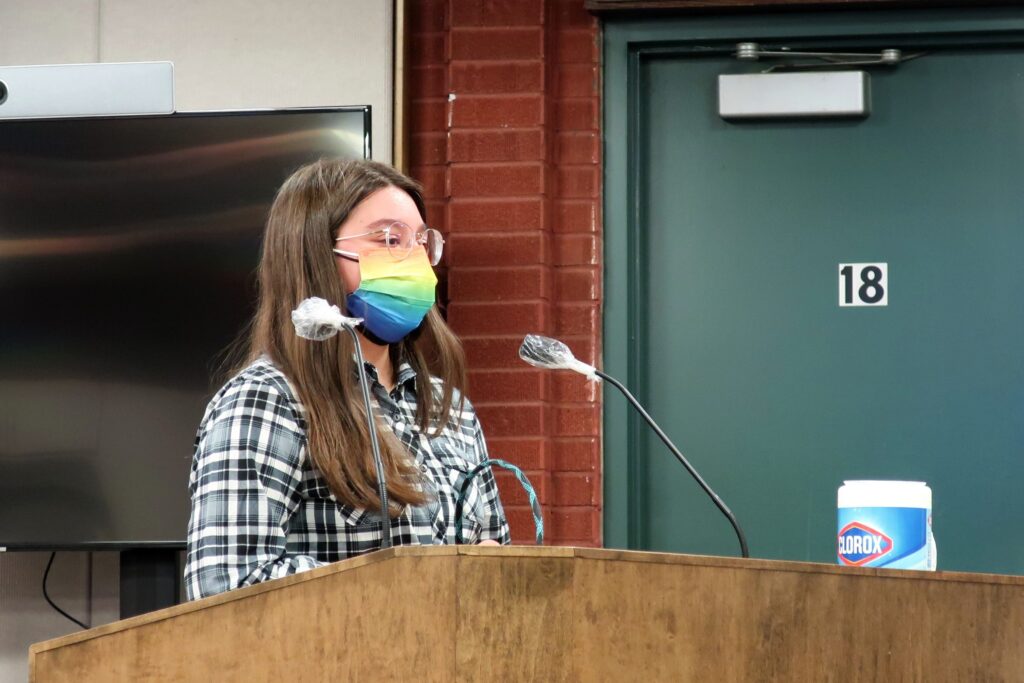
Parent Connie North found the severing of ties with A Queer Endeavor disheartening.
“I think it's very fear-based, but it's not acknowledged as such,” she said. “It's acknowledged as risk management. It's very fear-based. It's the opposite of moral courage.”
Where does this leave the district on diversity, equity and inclusion?
Several teachers interviewed by CPR who did not want to be identified for fear of losing their jobs, are skeptical that “in-house” equity training will be sufficiently in-depth or effective, compared to trainings with outside partners who represent marginalized communities.
They worry that the changes may further enable discrimination and attacks against students of color and other historically marginalized groups.
The district said last week it continues to have a consistent and deep commitment to its diversity, equity, access, and inclusion work. It said in a written statement provided to CPR News that it has developed the capacity to have its own staff provide equity training “to ensure consistency and alignment with district goals and priorities, as well as state and federal laws.” Teachers in all schools got training in June — and they will continue throughout the year. The district declined a request for an interview with CPR.
“As a teacher, I think my biggest feeling is just confusion, it's that you're saying one thing in your public statements and then I'm kind of supposed to do another,” said one. “I have kids that identify in all types of ways and I want to create a safe and inclusive environment where they see themselves mirrored in the world around them.”
